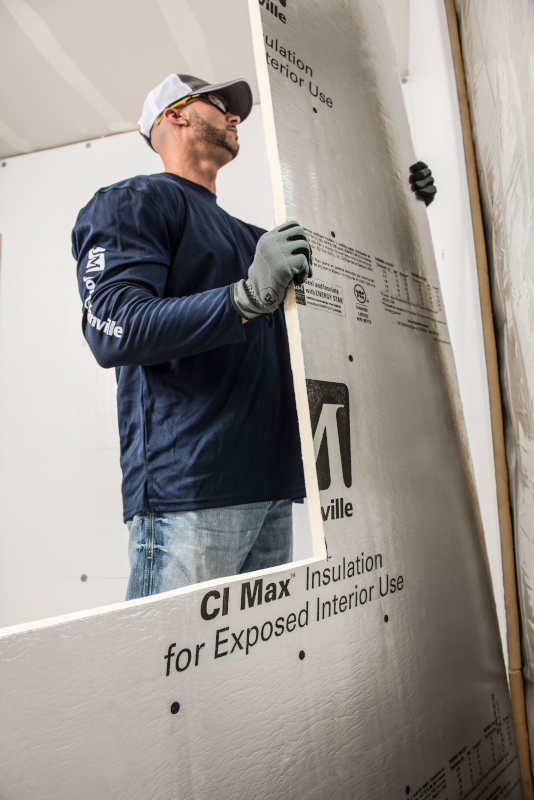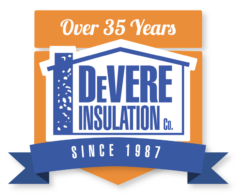Rigid Foam Board Insulation in Baltimore, MD
Types of Rigid Foam Insulation
Rigid foam board insulation typically comes in three products:
- Expanded Polystyrene Foam – Often used for insulated concrete forms or roof and wall panel insulation on commercial buildings, it’s made from foam similar to foam packing material, and is the least expensive of the rigid foam insulation options but has a lower insulation capacity per inch.
- Extruded Polystyrene Foam – Sometimes called blue board or pink board, it’s widely used in home insulation, especially basements, and provides stable, high quality thermal performance over time.
- Rigid Polyisocyanurate or Rigid Polyurethane Foam – The most expensive rigid foam insulation product, it also comes with the highest insulation capacity. Reflective foil facing polyisocyanurate adds to its thermal capacity when used in buildings with radiant heat.
Our expert insulation team will explain the benefits of each type of rigid foam board and help determine which is right for your project.
Where to Use Rigid Foam Insulation
 Rigid foam board insulation has a high insulating value relative to its thickness, providing optimal insulation for small spaces like framed walls. While other types of insulation may not provide enough insulation per square inch in small spaces, one of the benefits of rigid foam board insulation for energy efficiency is that it doesn’t need as much space to increase energy efficiency.
Rigid foam board insulation has a high insulating value relative to its thickness, providing optimal insulation for small spaces like framed walls. While other types of insulation may not provide enough insulation per square inch in small spaces, one of the benefits of rigid foam board insulation for energy efficiency is that it doesn’t need as much space to increase energy efficiency.
Rigid foam board is ideal for:
- Masonry cavity walls
- Below-grade basement walls
- Crawl spaces
- Framed walls (wood and metal)
- Pre-engineered metal buildings
- Cathedral and flat ceilings
Pros and Cons of Rigid Foam Board Insulation
The benefits of rigid foam insulation for your project far outweigh the challenges.
Some of the pros include:
- Prevents air leaks to increase your building’s energy efficiency
- Reduces heating and cooling costs for lower energy bills
- Improves indoor air quality
- Creates a smaller carbon footprint thanks to less stress on your HVAC unit
- Has a high R-value
- Controls moisture
- May help increase your property value for future environmentally conscious buyers
- Minimal maintenance is required thanks to its long-term durability and extended lifespan
- Seamless compatibility with various building materials
The main challenges include:
- Cost – It can have a higher upfront cost compared to other insulation choices, but your continuous return on investment (ROI) makes the initial investment well worth it.
- Structural strength – Rigid foam board alone may not provide as much structural strength as plywood but can easily be applied together to add insulation and structural stability.
Baltimore’s Expert Insulation Installers
At DeVere Insulation we have provided decades of experience in insulation services and expert installation to our Baltimore community. Since our start in 1987, we have grown into Maryland’s largest independent insulation contractor.
Check out what our customers are saying:
“Used the team at DeVere Insulation numerous times with excellent results. Quality, professionalism, and honesty… Perfect partners. Thank you!”
— Allen, contractor
“Great service and quality product and insulation.”
— Jason, homeowner
Contact us today for a free estimate and to find out if rigid foam board insulation is right for your project.
